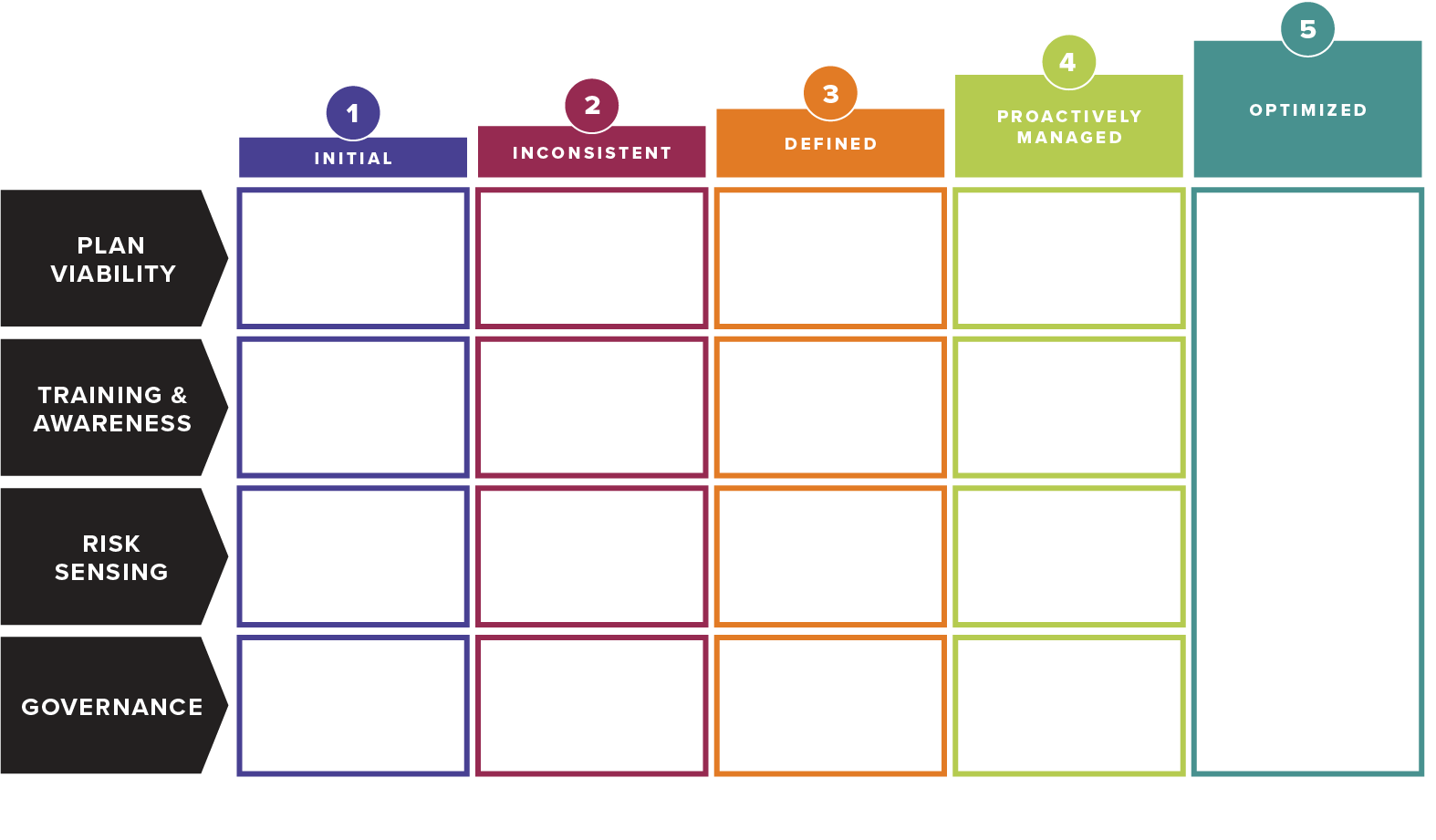Every headline grabbing crisis that develops traction—whether a leadership scandal, ethical or political issue, cyber attack or business disruption—has one thing in common, a poor response. And more than the underlying event or issue itself, it is the response that has the single biggest impact on the viability and reputation of the organization. A poorly conceived, slow, uncoordinated and insensitive response challenges our assumptions about the ability of the organization, and by default the leadership team, to manage not just the crisis at hand but the organization itself.
Evaluating how prepared your institution is to manage reputational risk, however, can be difficult. Most have some of the key components in place and your leadership team may have already grappled with—and survived!—some challenging issues. However, based on our experience, we would caution against being overly optimistic as we find most schools overestimate their own resilience and their leadership team’s capability.
As with every other area of an institution’s strategy and mission, without a clear, overarching understanding of goals and objectives it is impossible to empirically evaluate capability and/or success. This equally applies to efforts to manage and reduce reputational risk. We’ve leveraged our team’s decades of experience in emergency management, crisis management, and crisis communications, to build a maturity model to help you evaluate your team and guide where your institution should focus its resources.
Keep reading below for the four critical components of evaluating preparedness at your institution.
SHARE THIS:
5 Questions
to ask your team
- Beyond emergency response, what plans are in place and how useful are they?
- When was the last time we participated in an exercise that was not about a physical event but reputational risk e.g. sexual assault, racism, or faculty misconduct?
- Do we have a culture in which “bad news” is proactively shared and escalated?
- Do we have a defined process to identify, prioritize and proactively manage the top 5 issues facing our institution in the year ahead?
- Who does/should “own” managing reputational risk?
Steps to take now
Most organizations either have little by way of documented plans or they are siloed. Other have plans in place but are completely ignored as they don’t provide the guidance and support the institution needs. To be viable, plans have to be tailored, reflect how the institution actually works and incorporate best practice. Critically, they have to be understood, integrated, and aligned across the organization.
Training and exercising is critical. It increases team cohesion, improves individual and team understanding, validates and improves written plans and helps an organization become crisis ready. A program without training is like a cake recipe without ingredients – good on paper but unlikely to rise to the occasion.
Risk sensing is the capability to detect and identify issues or events sufficiently early so that the institution can prevent them from degenerating into a crisis. It is a critical, proactive approach to buy time to map a different strategy to reduce the impact of slow-moving, corrosive issues on the reputation of the institution.
Wishing it doesn’t make it so. Effectively managing reputational risk needs to be a cross-functional, institutional priority with clear goals, supporting metrics, & defined accountability and resources.
While the work can be difficult, the results can set your organization apart through early identification and mitigation of risk and fast, coordinated, and proactive decision-making that can withstand the credibility test of intense stakeholder scrutiny.
Need some help?
We've been there
Unfortunately, it is typically only once the crisis has dissipated that leaders recognize that they were not sufficiently prepared and that the impact could have been mitigated. Crisis management is about more than “getting the smartest folks in a room” or “living your values.” While both are incredibly important, success in managing reputational risk also requires a defined and disciplined management process, a proactive approach, and an ability to meet the expectations and information needs of core stakeholders.
We'll help you prepare
BMCG provides colleges and universities insight, counsel, and experience to help them effectively manage real-time response to significant issues and crisis events. We also help them mitigate issues and avoid crises altogether through crisis readiness assessments, the development of proactive issues management programs, the enhancement or development of crisis management, crisis communications, emergency response and business resiliency plans and programs, and by conducting training, exercises and leadership sessions.
